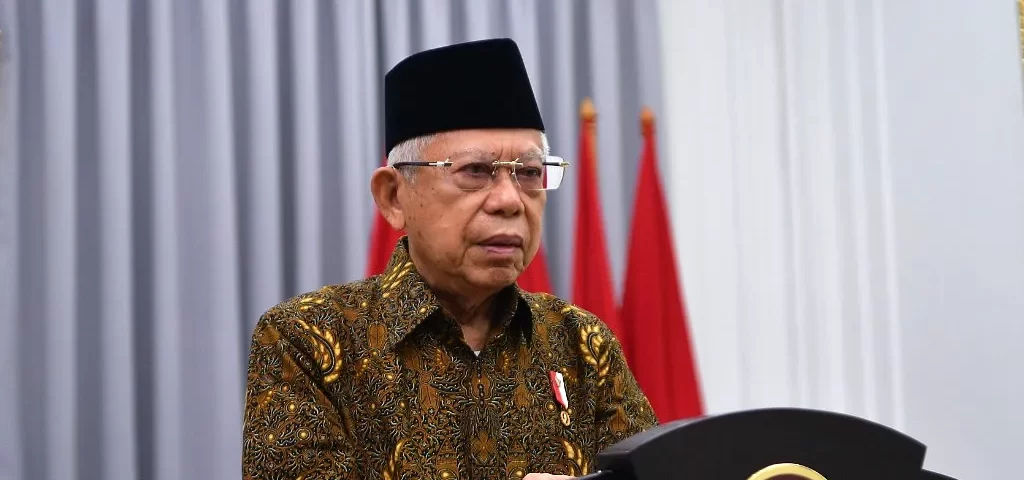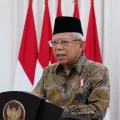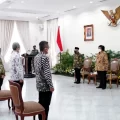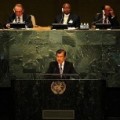Jakarta, wapresri.go.id – Efforts to achieve the Sustainable Development Goals or SDGs in various countries had currently faced severe challenges as a result of the global economic crisis that was currently hitting. Moreover, the Covid-19 pandemic had stopped or slowed the progress of efforts to achieve the SDGs carried out by the global community.
Likewise, Indonesia, even though its position in the effort to achieve the SDGs targets rose from 97th in 2021 to 82nd in 2022 among 163 countries, however, currently still had a variety of homework to do. Especially, in achieving the first SDGs target, namely eradicating poverty, and the second SDGs targeting eradicating hunger and malnutrition.
“In order to eliminate poverty in any form as the first SDGs goal, for example, the government puts forward social protection policies and community empowerment,” said Vice President KH Ma’ruf Amin when virtually opening the 2022 Indonesian SDGs Corporate Summit (ISCOS) which was organized by the Corporate Forum for CSR Development (CFCD) in Jakarta, Tuesday (06/09/2022).
In addition to reducing national poverty by 10.14% as of March 2021, continued the Vice President, the social protection policies were also primarily aimed at targeting extreme poverty, which was still recorded at 4%. According to him, this must continue to be lowered as the President’s target was to eradicate extreme poverty to 0% by 2024.
“Therefore, integration, synergy, and collaboration of programs/activities from various Ministries/Institutions, as well as the involvement of non-Government actors are the keys to the success of the agenda for achieving 0% extreme poverty. Besides, of course, the accuracy of target data for program beneficiaries,” he explained.
Likewise, in efforts to achieve the second SDGs goal, said the Vice President, namely eliminating hunger and all forms of malnutrition, the government was supported by all elements of the nation. All of them were required to work hard and smart, so that the stunting prevalence target of 14% in 2024 can be achieved.
“Apart from the decline in the stunting rate by 30.8% in 2018 to 24.4% in 2021, there is still a big challenge to reduce 10.4% in the next 2.5 years,” he explained.
Therefore, according to the Vice President, as the holder of the 2022 G20 Presidency, Indonesia invited the whole world to work for hand in hand, support each other to recover together and grow stronger and more sustainable.
“Aligning this spirit, the theme raised by ISCOS 2022 illustrates the importance of the contribution and collaboration of various parties in achieving the SDGs pillars that are inseparable from each other,” he said.
Furthermore, at the event that carries the theme Encouraging Sustainable Economic Environmental and Partnership for Inclusive Growth within the SDGs Pillars, the Vice President invited stakeholders, both from the government, the business world, professional institutions, academics and researchers, as well as the community continue to collaborate to achieve the SDGs targets in Indonesia.
“The Covid-19 pandemic is actually also a shared momentum to strengthen solidarity in facing the crisis,” he said.
Lastly, the Vice President also appreciated the active role of CFCD as a corporate network in the development of social responsibility/CSR, as well as encouraging responsible and sustainable business leadership for the business world in Indonesia.
“I also appreciate corporations that have committed to CSR programs based on SDGs to assist the government in achieving development targets,” he concluded.
Previously at this hybrid event based in Bali, CFCD General Chair Thendri Supriatno in his report revealed that the SDGs goals must be realized jointly not only by the government but also private corporations.
“Because together, we hope that the very ambitious sustainable development goals or SDGs, such as in 2030, the hope that there will be no more poverty, can be realized,” he stressed.
In addition, Minister of Energy and Mineral Resources Arifin Tasrif in his presentation on the transformation of green energy in Indonesia revealed that the government continues to be committed to realizing the SDGs target, especially number seven, namely clean and affordable energy for all.
“The government continues to expand access to energy for the community, especially electricity. For people living in remote areas, local renewable energy sources are provided,” he explained.
In addition, said Arifin, the current government was also continuing to add transmission lines and substations that are connected between islands to make it easier for people to access electricity.
“The government also continues to promote the use of natural gas as a substitute for fuel oil and liquefied petroleum gas (LPG). One of them is the government building a city gas network as an effort to reduce the use of LPG,” he added.
Present at this event, a number of Ministers of the Advanced Indonesia Cabinet, Ambassadors of friendly countries or their representatives, Chair of ISO SGN International, Corporate Leaders and their staff, Chair of the Indonesian SDGs Corporate Summit, and CFCD Management.
Meanwhile, the Vice President was accompanied by the Head of the Vice Presidenti Secretariat Ahmad Erani Yustika, Deputy for Economic Policy Support and Competitiveness Improvement Guntur Iman Nefianto, Deputy for Government Policy Support and National Insight Velix Wanggai, and Special Staff for the Vice President for Communication and Information Masduki Baidlowi. (DMA/LHS-BPMI Setwapres)







